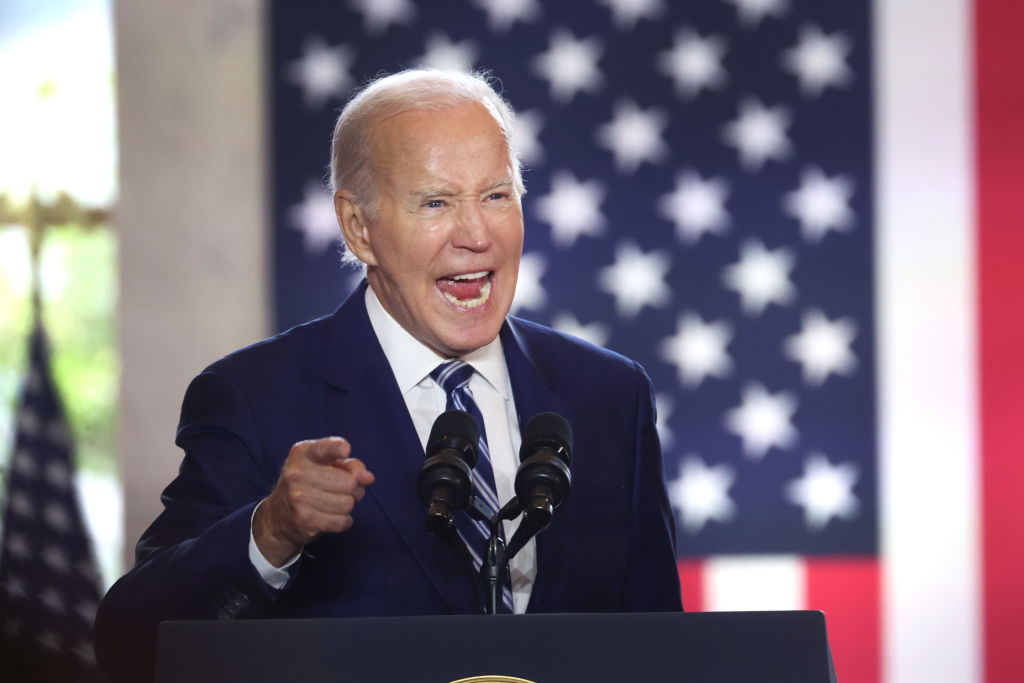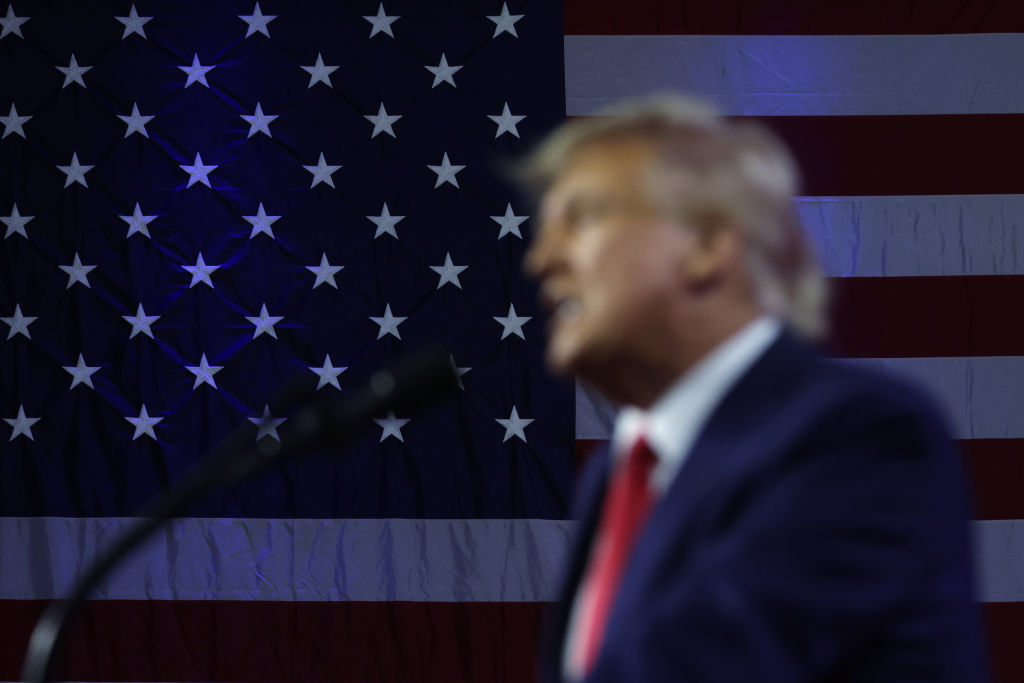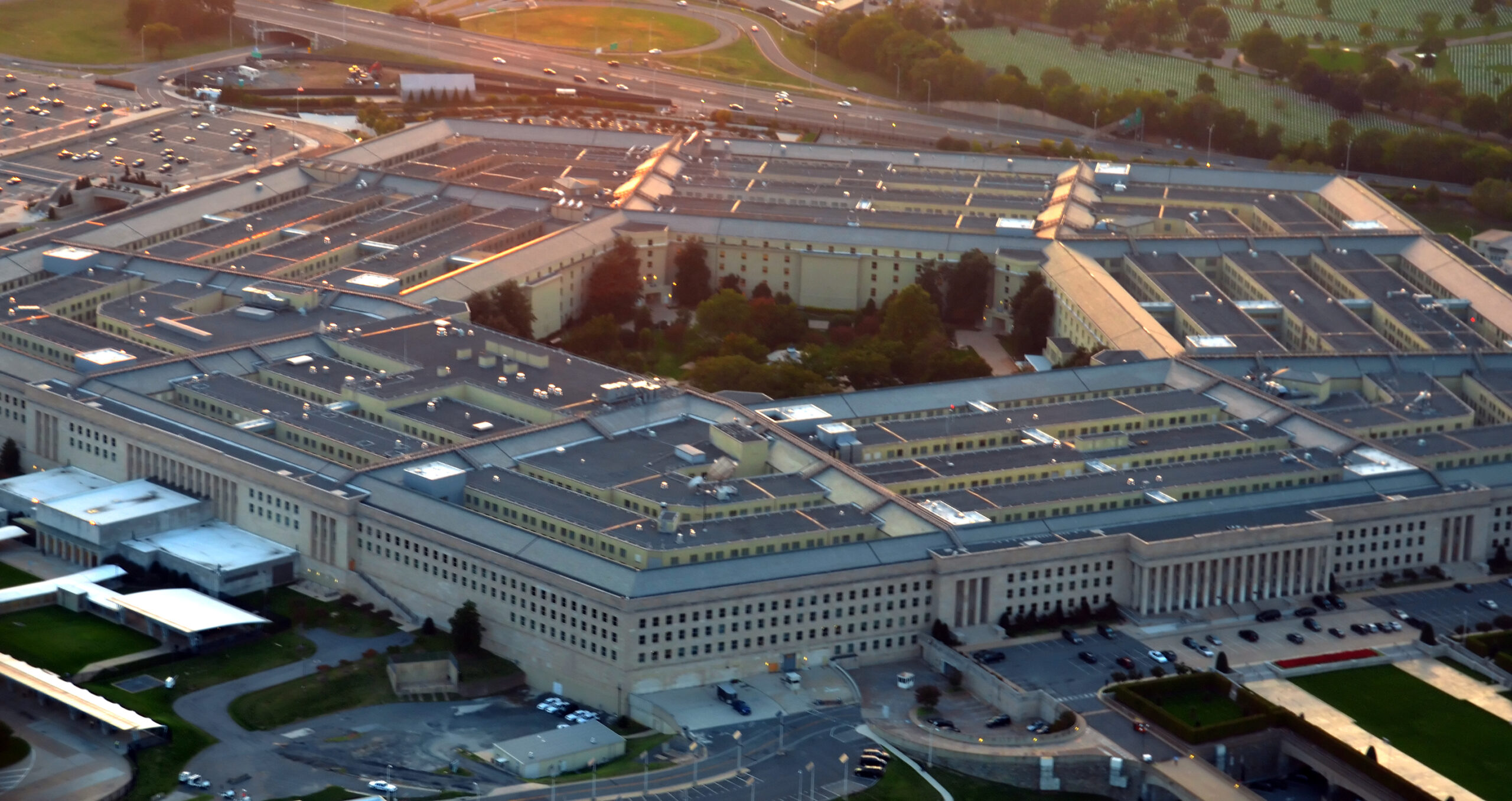President Biden’s reading of the Second Amendment is seriously off-kilter.
Debunking Jack Smith’s Latest Indictment Against President Trump
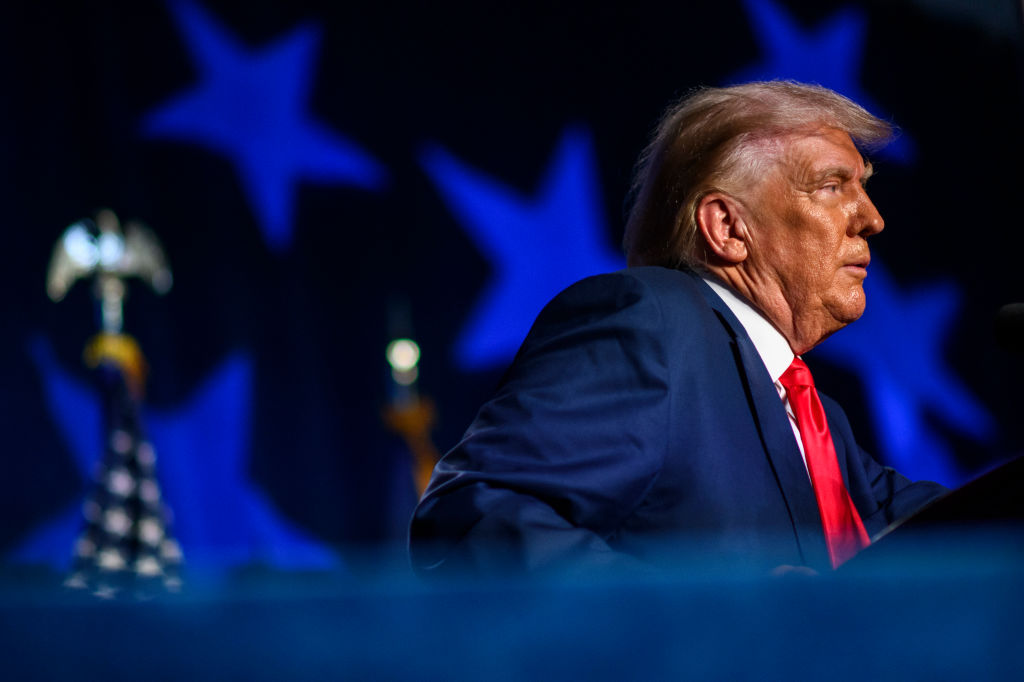
Efforts to sow confusion and chaos in our election systems must be confronted.
When the Supreme Court denied the State of Texas’s lawsuit in December of 2020 to challenge the integrity of that year’s general election for lack of Article III standing, there already existed an overwhelming trove of evidence of procedural abnormalities and statistical anomalies that pointed to fundamental questions about the legitimacy of the election. Well over 155 million votes were allegedly cast in that year’s cycle—the most of any vote total in presidential history, surpassing 2016’s previous record-setting high by a whopping 28 million votes. Moreover, the 2020 election not only saw the highest percentage of votes cast either by mail or absentee ballot in modern American history, but it was the first time in which election day voting represented a minority of all methods of casting ballots: fewer than one third of voters who cast their ballots in the 2020 general election did so in person on election day.
Even if there was absolutely no evidence of election fraud, the fact that more votes were cast than in any other election in American history—the majority of the ballots having been cast prior to the official election day by mail, a method of voting historically recognized as being rife with fraud, not only in the United States but other Western democracies—meant that extreme diligence and precautionary care ought to have been taken to minimize the high probability of outcome determinative error in an election of such complexity.
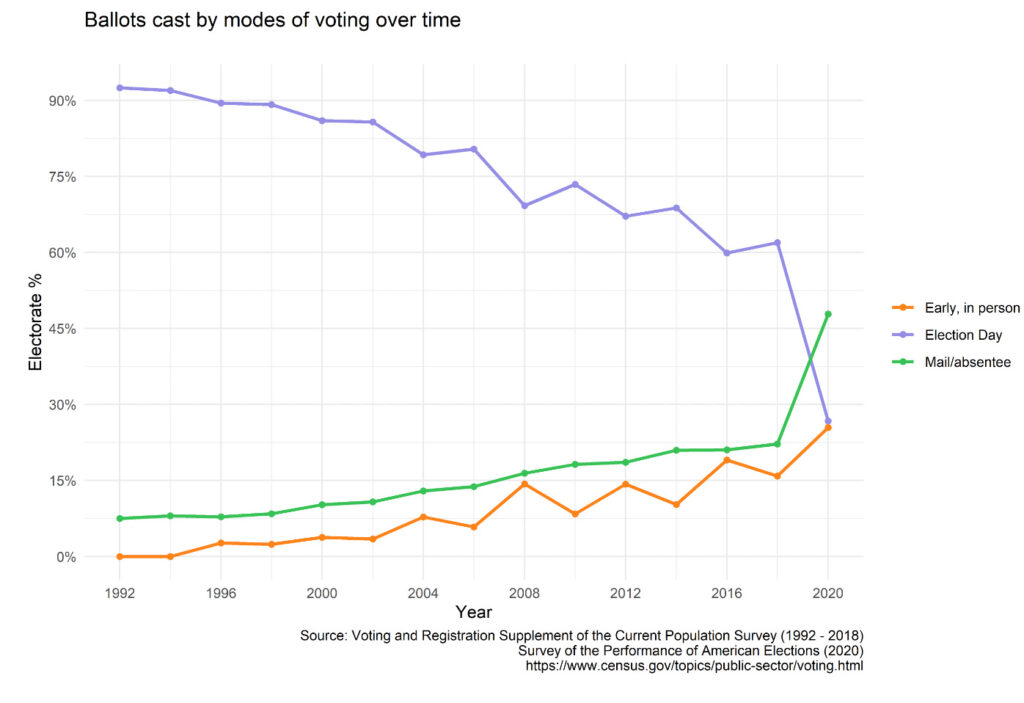
The winner of the 2020 election was not declared by most mainstream networks, including ABC, CBS, NBC, as well as mainstream cable networks like Fox News and CNN, until November 7, four days after polls closed. This was the longest gap in time to declare a winner since 2000, when the outcome in that year’s presidential election was eventually settled by the Supreme Court in Bush v. Gore.
Other serious abnormalities arose that, in a normal political climate, would have been cause for concern about overall election integrity. For example, despite Trump having won 18 of the 19 bellwether counties that have voted for the president in every election from 1980 to 2016, the mainstream media still called the race for Joe Biden. Moreover, the three major swing states—Florida, Iowa, and Ohio—which voted for the winner of every presidential election since 1996, all voted for Donald Trump. Biden won only 509 counties compared with the 2,500+ won by Trump, or just 16.7 percent of all the nation’s counties, the fewest of any presidential winner in history. On top of everything else, there were high-profile, newsworthy abnormalities that occurred on election night, or in the hours and days immediately following, that plainly did not make sense.
Obviously, there was the story of the water main break in Georgia, in critical Fulton County, which occurred as vote counters were still tabulating ballots on election night. The pipe breakage conveniently bought officials time to delay the counting of nearly 40,000 outstanding, outcome-determinative absentee ballots.
Then there were the countless stories of “ballot trafficking,” as documented in the now infamous Dinesh D’Souza film, 2000 Mules, whereby thousands of nonprofit hires, or “mules,” dumped fraudulent absentee ballots in critical swing states like Georgia and Arizona overnight, which contaminated the process and likely changed the final result of the election in those states.
There was also a patent lack of transparency in the days following the election, particularly in Democratic strongholds such as Philadelphia, where major election sites were in some cases unlawfully closed off from the public, violating their fundamental right to transparent elections despite public assurances that ballots were counted consistent with state law and were executed impartially and without political bias. It was impossible to guarantee those assurances in Philadelphia or Fulton County or Maricopa County; indeed, the public’s constitutional rights in these procedures were fundamentally violated, itself sufficient grounds to demand recounts and reforms in at least those select battleground states.
Recounts, audits, and legal challenges commenced throughout the months of November and December, many extending well beyond the “first Tuesday after the second Wednesday in December”—in other words, the codified date on which the electors for president and vice president must meet. However, a major caveat existed: not unlike the unprecedented (and, in many cases, unlawful) manner in which certain states’ elections were carried out, the recounts and audits were conducted sloppily at best. So as not to belabor this point, here are just a few examples:
In Georgia, where Joe Biden became the first Democrat to win the state in nearly 30 years by a minuscule 11,779 votes (or by just 0.23 percent), several audits and recounts were conducted in the weeks after election day. Statewide, the “official” Georgia hand recount resulted in Biden’s lead slimming by 1,274 votes, over ten percent of the margin of victory. It should be noted, however, as a major source of controversy, each audit occurred without signature verification: after the signed envelope containing an absentee voter’s ballot was received, the ballot was removed with no way of reconnecting the two again.
While some argued this falls under the Georgia Constitution’s requirement of a secret ballot (though it should be noted that other states with similar secrecy requirements enable the reconnection of ballots), Georgia failed to properly audit the 2020 election and mitigate the legitimate concerns raised. Given that a majority of voters cast their ballots by mail, which led to the heightened scrutiny in the first place, it appears likely that Georgia officials lacked the requisite means to ensure the orderly count, recount, and audit of those votes.
In fact, the secretary of state’s failure to properly implement a signature verification system led to a complete overhaul of the balloting process. As a result of Georgia’s 2021 election law changes, voters now verify their absentee ballots by providing a driver’s license number or identification card. To add insult to injury, on top of the already dubious “signature verification” scheme which experts agree is a notoriously subjective process to begin with (for instance, what accounted for the general election having only 32.5 percent of the invalid signatures cured, compared to over 60 percent in the 2021 runoff?), votes from Georgia’s 159 counties were audited multiple times, yielding staggering results: an audit of Fulton County on November 16, 2020 (more than a week after the media declared Joe Biden the President-elect) found 2,600 otherwise uncounted ballots as a result of a person “not executing their job properly”; Fayette County failed to count another 2,755 votes; and several other forgotten memory cards carrying hundreds of votes were discovered across the state. The fact that Trump is facing possible federal charges for having inquired about “finding” votes in a state which indeed lost thousands of votes is an indicator of the corruption of the system.
These challenges continued for weeks on end, such that another audit was announced in Cobb County on December 14, 2020, the day on which the electors were scheduled to meet. This is the backdrop that caused the meeting of the alternate electors in Georgia, which many legal scholars have pointed out that a similar scenario unfolded in Hawaii in 1960. Hawaii had officially certified the election and sent its own electors for Nixon accordingly, but because there was an ongoing legal challenge, an alternate slate of electors was sent by a group of Democrats for Kennedy. In the 1960 case, it was the alternate slate of electors that ultimately were counted and certified.
In Pennsylvania, mail-in ballots constituted about 40 percent of the ballots cast statewide (up from 4 percent in 2016). The margin of victory was a narrow 1.17 percent, and legal challenges to the election procedures occurred well into December. Following an order by Justice Alito to separate the ballots arriving after election day, a deadline to challenge the state’s mail-in votes was set a day after the “safe harbor” deadline, or the day by which states were required to resolve their election controversies. A September 2020 decision from Pennsylvania’s Supreme Court clarified state law by requiring that ballots be placed in “secrecy envelopes” in order to be counted. “Naked ballots” lacking the envelope were not to be counted, which led to significant confusion during the primary. As a result, Pennsylvania implemented massive voter education efforts to prepare election workers specifically on how to manage these ballots, which were returned without having first been placed in a secrecy envelope. It remains unclear how many “naked ballots” were cast during the 2020 general election. Likely not wholly unrelated, it is noteworthy that the 2020 general election saw a significantly lower mail-in ballot rejection rate.
In Wisconsin, the hundreds of drop boxes installed during the 2020 election to collect absentee ballots were deemed “illegal under Wisconsin statutes” by the state’s supreme court in 2022. This is particularly troublesome, considering a whopping 40.8 percent of the ballots in the 2020 election were cast by mail, compared to just 4.8 percent in 2016. Because of these illegal election law changes, as explicitly referenced by John Eastman in his memoranda, the country may never know how many votes in Wisconsin were cast and counted in accordance with the state legislature’s procedures, a state that went for Biden by just around 20,000 votes, or a 0.63 percent margin of victory. Wisconsin also saw a record high turnout rate, so much so that many observers have questioned the definition of “turnout rate” itself: 89 percent of registered voters in Wisconsin cast their ballots in 2020.
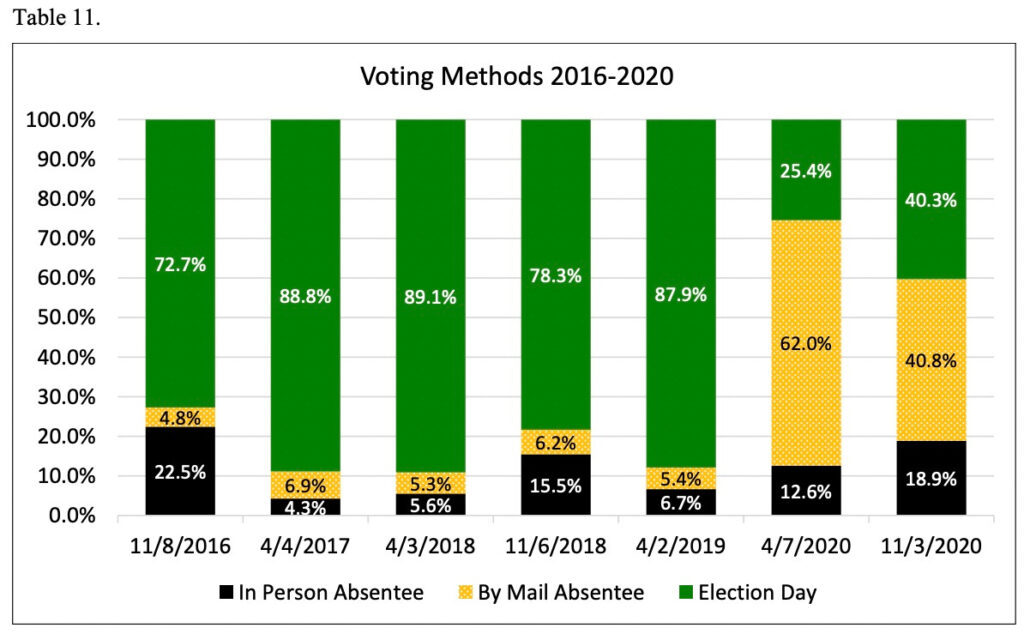
Election law challenges were not limited to Wisconsin. Several states saw improper changes to election laws by bodies other than the state legislature, in violation of Article I, Section 4, Clause 1 of the Constitution. While some of the lawsuits were successful in the weeks leading up to the election, others after November 3 were dismissed not on the merits but instead due to lack of standing. Regardless, many lawsuits were ongoing at the appointed time at which the electors were scheduled to meet in December.
The President of the United States was, in the weeks following the fraudulent election, outright censored, shadow banned, and blacklisted from every major social media platform, including Facebook, Instagram, and Twitter—his influence and reach severely undercut and silenced by a partnership of hostile government agents and private actors in Silicon Valley who harbored well-known political and personal antipathies against him. Even while still on those platforms, however, there has come to light overwhelming evidence that pro-Trump stories, or at the very least, stories perceived as anti-Biden or anti-Democratic, were shadow banned, if not outright censored, by those very same platforms. The Twitter Files shed some light onto what had happened behind the scenes. FBI agents, in collusion with censors who worked at Twitter, conspired surreptitiously to find ways to shut down content-based political speech, which should be protected speech under the First Amendment. The most damning revelation to have come out of the Twitter Files was, of course, the concerted effort to silence the Hunter Biden laptop scandal, as originally reported by the New York Post in the days and weeks leading up to November 3.
The reports of thousands of emails exchanged between Hunter and business associates over a decade-long period strongly hinted at a money laundering scheme involving the Ukrainian company Burisma, for which Hunter Biden is currently facing criminal charges, and through which the son of Joe Biden profited from his father’s lucrative contacts in foreign governments and other connections afforded by his public office. The FBI granted expedited Top Secret security clearances, normally reserved exclusively to high-ranking government officials, to members of Twitter in order to create a special portal for Twitter staff to counteract “disinformation”—which really meant any reporting that might benefit the Trump campaign at the expense of the Biden campaign. When polled, nearly 4 in 5 Americans believed that but for the censorship of the Hunter Biden story, the outcome of the 2020 presidential election, rigged procedures put to one side, would have been different.
The greatest anomaly of the 2020 general election was the political context in which the election took place: COVID-19 reset the entire paradigm. One can easily forget that in December of 2019, prior to the first reported outbreak of the pandemic on American shores, the Trump economy was raging, unemployment was at historic lows across every demographic group, global terrorism was at decades lows, and America’s future looked quite bright. Then everything changed. The majority of states radically changed their election procedures—beyond anything previously seen in American history—using the justification of national emergency, which deeply complicated the process of counting votes. Such changes included switching to “universal mail voting”—which the Left sold to the public as a “civil rights issue,” adding a veneer of moral propriety to make it easier for them to affect the outcome of the election.
The fact that so many states, such as Nevada and Vermont, made these changes permanent proves that civil rights was never the driving issue; these changes were always about maintaining power. The result of these changes meant “that millions more Americans will receive mail ballots in future elections,” as reported by Politico. The influx of new ballots has deeply muddied the waters and sowed permanent doubts about the integrity of all future elections.
As it stood, prior to the pandemic, the integrity of our elections has been put into serious doubt over years by Democrats and Republicans alike. Before 2020, election integrity was mostly a Democratic boilerplate issue: the results of the 2000, 2004, and 2016 presidential elections, in particular, were seriously undermined by Democratic lawmakers and their media allies who in many cases outright denied the legitimacy of both elections. In 2016, many leading Democrats, incredulous over the thought of Donald Trump winning the 2016 election, also discussed the possibility of sending alternate electors or supporting so-called “faithless” electors, even going as far as signing onto an attempt to sully the electors’ fight on the grounds that the Electoral College is a “deliberative process.” Then, the Left had no shame in sowing doubts about the integrity of the election process and the legitimacy of the Trump presidency, having already conjured a false narrative about Russian influence in the 2016 election, to which the American people were subject nonstop for the entire first half of Trump’s term in office.
According to the Durham Report, “neither U.S. law enforcement nor the Intelligence Community Appears to have possessed any actual evidence of collusion in their holdings at the commencement of the Crossfire Hurricane investigation.” It was the Crossfire Hurricane investigation launched on July 31, 2016, in the middle of the presidential election, that established the legal imprimatur for the Obama FBI to wiretap the Trump campaign. The 2020 election was carried out in the most polarized political climate since 1860. Because of our deeply polarized state of affairs, the election results were bound to be close, either way. So the fact that Trump’s administration wanted to exercise its due diligence—in light of how close our presidential elections are, including in 2020, which was decided by a mere 50,000 votes spread across a handful of states—was reasonable.
Indeed, it would have been an act of grave negligence had Trump not made inquiries into the integrity of the election. His phone calls, for example, to the Georgia governor, and his demands to the Georgia secretary of state, for which he is now being investigated, and state legislatures in critical battlegrounds, like Michigan and Wyoming, is not an impeachable or indictable offense: it is an act of precautionary care, the type of action one would expect a president to carry out to meet his constitutional oath.
The words President Trump chose to communicate to Brian Kemp are far, far less important constitutionally speaking than the act itself, which was motivated by sincere worries about the legalities of the 2020 election, and out of an abundance of concern to uphold his Article II, Section 3 duty: “to take care that the laws be faithfully executed.” The first line of Article II stipulates that “the executive Power shall be vested in a President of the United States of America.” Donald Trump, as President of the United States, therefore had a constitutional prerogative to ensure the integrity of the electoral process.
That dozens of states changed their election procedures during an extraordinarily precarious moment in American history would indeed necessitate the kinds of actions, at a bare minimum, that Trump undertook in the days following the 2020 election, in order to meet his oath. Here are just a handful of examples:
- Florida’s voter registration deadline was extended.
- Pennsylvania provided for prepaid postage for mail-in and absentee ballots. The state also extended the deadline for mail-in/absentee ballots, and authorized dropbox access for the collection of such ballots.
- Arizona’s voter registration deadline was extended.
- Michigan sent mail-in ballot applications “automatically” to all voters for the general election.
- Maine extended its voter pre-registration deadline for the general election.
- Wisconsin automatically sent mail-in ballots to most voters for the general election.
The above partial list, which names just a handful of prominent swing states, only reflects the tip of the iceberg of the monumental, historic, and unprecedented changes that were unlawfully implemented by state legislatures across the country to make ballot harvesting and voting generally easier (which is to say, more susceptible to corruption) in the lead-up to the 2020 election. And this list excludes deep blue states like California and New York, which made radical changes to its voting laws, including authorizing counties to “consolidate polling places”; extending the eligibility for mail-in ballots to any person deemed unable to personally appear at the polling place because of a risk of contracting COVID; and opening “online portals” to request absentee ballots, among other revolutionary changes that made voting easier and thus significantly more vulnerable to fraud. Indeed, one can reasonably argue that the procedures themselves, of highly dubious legality again, were prima facie fraudulent. And this neglects the hundreds if not thousands of other arbitrary rule changes made nationwide on a state-by-state basis, such as mask-wearing requirements and other unprecedented, last-minute rule changes implemented in numerous states with the purpose of maximizing Biden voters and minimizing Trump voters.
In a country of this size under normal conditions, the changes discussed above would typically require years to implement in order to guarantee their efficacy. But the goal of electioneering in this country is no longer one of minimizing corruption to ensure a fair, orderly, and competent process—producing outcomes that every American can confidently rally around. Instead, its purpose has been reverse engineered to now sow as much confusion in the process as humanly possible, making election procedures so complicated—and the thought of conducting proper discovery in a would-be lawsuit so time consuming and arduous—that it has tragically rendered irreparable damage to the legitimacy of the entire system.
Free and fair elections, much like equitable justice, is a foreign concept in a banana republic. The expedited timeline by which the 2020 general election procedures were changed in the name of national security is the ultimate testimony of a society that does not care any longer for competence, or fairness, or democratic governance, or putting its own interests above the voters’. Instead, it is the mark of a regime that is sinking into unmanageable corruption.
The American Mind presents a range of perspectives. Views are writers’ own and do not necessarily represent those of The Claremont Institute.
The American Mind is a publication of the Claremont Institute, a non-profit 501(c)(3) organization, dedicated to restoring the principles of the American Founding to their rightful, preeminent authority in our national life. Interested in supporting our work? Gifts to the Claremont Institute are tax-deductible.
Romanticizing direct democracy leads to pandemic anarchy.
Win or Lose, It’s Coming.
The regime isn’t embarrassed by its violation of cherished liberal principles.
Restoring pride in the military will require a massive effort.
The West abandoning its ideological imperialism is the first step.

